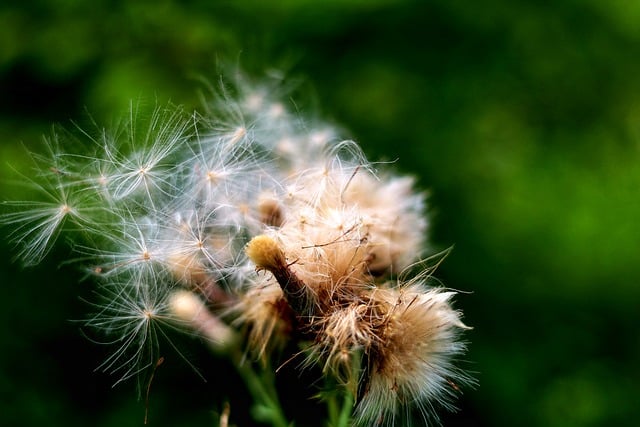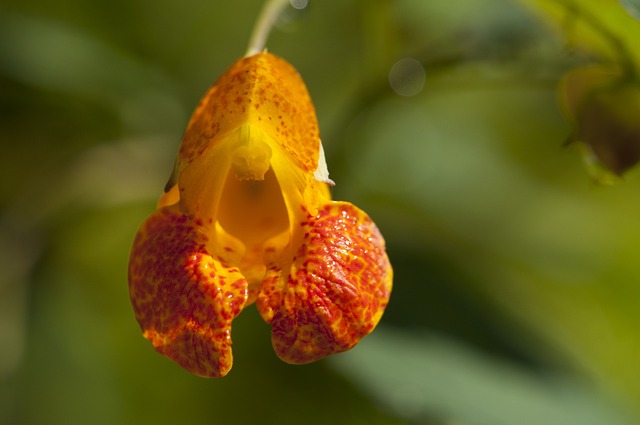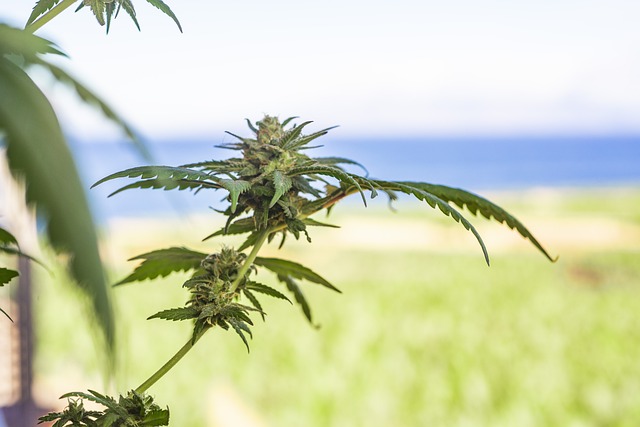
The THCA flower, rich in tetrahydrocannabinolic acid (THCA), has been recognized for its significant anti-inflammatory properties. Unlike the psychoactive form THC, THCA does not induce a high and offers health benefits without mind-altering effects. Studies indicate that THCA interacts with the endocannabinoid system, particularly the CB2 receptors, to potentially regulate inflammation. This interaction is crucial for managing inflammatory conditions such as arthritis and skin inflammations. The non-psychoactive nature of THCA flower makes it a safe and natural alternative to traditional anti-inflammatory drugs, offering relief from inflammation with minimal side effects. For those interested in exploring its benefits, it's important to start with a low dosage, choose high-quality lab-tested products, and consult healthcare professionals. THCA flower can be consumed through various methods including vaporizing, smoking, or edibles, depending on individual preference. Proper storage is necessary to maintain its potency, and adherence to local laws is essential when considering the use of cannabis-derived products for their anti-inflammatory effects.
Discover the transformative potential of THCA flower, a natural marvel increasingly recognized for its potent anti-inflammatory effects. This article delves into the therapeutic properties of raw cannabis, specifically focusing on how it can offer relief from inflammation. From understanding the science behind its benefits to integrating it safely and effectively into your wellness routine, we explore the multifaceted advantages of THCA flower as a natural remedy. Join us as we uncover the mechanisms that make THCA a standout in anti-inflammatory therapy.
- Unveiling the Potency of THCA Flower: A Deep Dive into Its Anti-Inflammatory Properties
- The Science Behind THCA Flower: Mechanisms and Benefits for Inflammation Relief
- THCA Flower as a Natural Remedy: Exploring its Application in Anti-Inflammatory Therapy
- Integrating THCA Flower into Your Health Routine: A Guide to Safe and Effective Usage
Unveiling the Potency of THCA Flower: A Deep Dive into Its Anti-Inflammatory Properties

Unveiling the Potency of THCA Flower, rich in its natural form known as tetrahydrocannabinolic acid (THCA), has garnered significant attention within the scientific community for its anti-inflammatory properties. Unlike its psychoactive counterpart THC, THCA is non-psychoactive, offering potential health benefits without the psychotropic effects. Studies have highlighted that THCA flower possesses a robust profile of cannabinoids and terpenes, which synergistically contribute to its anti-inflammatory efficacy. These compounds interact with the body’s endocannabinoid system, influencing various physiological processes, including the immune response and pain perception. Preclinical research indicates that THCA may effectively modulate inflammation, offering promise for those seeking natural alternatives to conventional anti-inflammatory medications. The anti-inflammatory effects of THCA flower are particularly noteworthy due to its potential to alleviate symptoms associated with a variety of inflammatory conditions, without the side effects commonly seen with traditional pharmaceuticals. As such, the exploration into the therapeutic properties of THCA flower continues to expand, underscoring its potential as a natural remedy for managing inflammation-related disorders.
The Science Behind THCA Flower: Mechanisms and Benefits for Inflammation Relief

The THCA, or tetrahydrocannabinolic acid, found in raw cannabis flowers possesses a range of potential health benefits, with notable attention to its anti-inflammatory properties. This natural compound interacts with the body’s endocannabinoid system, which plays a critical role in regulating various physiological processes, including pain and immune response. Studies have indicated that THCA can inhibit certain inflammatory responses by modulating the activity of key signaling molecules involved in the inflammatory cascade. This anti-inflammatory effect is particularly relevant for individuals experiencing conditions like arthritis or those recovering from injuries, where reduced inflammation can lead to pain relief and improved overall well-being. The precise mechanisms behind THCA’s action are under ongoing investigation, with recent research suggesting that its impact on the CB2 receptors of the endocannabinoid system is a key factor in its anti-inflammatory effects. This selective engagement with the CB2 receptors may offer a therapeutic avenue without the psychoactive side effects typically associated with other cannabinoids like THC, making THCA flower an attractive option for those seeking natural relief from inflammation-related discomfort.
THCA Flower as a Natural Remedy: Exploring its Application in Anti-Inflammatory Therapy

Delta-9-tetrahydrocannabinolic acid (THCA) is a non-psychoactive cannabinoid found naturally in the Cannabis sativa plant. The THCA flower, which contains this cannabinoid in its raw form before heating leads to the conversion into THC, has garnered attention for its potential anti-inflammatory effects. Studies suggest that THCA may exert anti-inflammatory actions by inhibiting pro-inflammatory cytokines and enzymes involved in inflammation pathways. This could be beneficial for a variety of conditions where inflammation plays a significant role, such as arthritis or skin inflammations. The anti-inflammatory effects of THCA are believed to be mediated through interaction with the body’s endocannabinoid system, specifically its receptors CB1 and CB2. This interaction can lead to modulation of immune responses and reduction in inflammation without the psychoactive side effects associated with THC. Preliminary research indicates that THCA flower may offer a promising natural alternative for anti-inflammatory therapy, particularly where traditional pharmaceutical options are less desirable or have not been effective. As with any therapeutic intervention, further clinical trials are necessary to fully elucidate the efficacy and optimal dosing of THCA flower for inflammatory conditions.
Integrating THCA Flower into Your Health Routine: A Guide to Safe and Effective Usage

THCA flower, rich in tetrahydrocannabinolic acid (THCA), is gaining attention for its potential health benefits. THCA is the non-psychoactive precursor to THC and has been studied for its anti-inflammatory effects. Integrating THCA flower into your daily health routine can be a natural approach to supporting overall well-being. To do so safely and effectively, it’s important to start with a low dose to gauge individual sensitivity. Consistency is key; consider maintaining a regular dosing schedule. THCA flower interacts with the body’s endocannabinoid system, which regulates various functions and maintains homeostasis. Its anti-inflammatory properties are particularly noteworthy for individuals seeking relief from inflammation-related conditions.
When incorporating THCA flower into your health regimen, it’s crucial to source high-quality, lab-tested products to ensure purity and potency. Additionally, consult with a healthcare provider beforehand, especially if you have existing health conditions or are taking other medications. Proper storage of the THCA flower in a cool, dry place will help preserve its beneficial compounds. For those looking to harness the anti-inflammatory effects of THCA flower, it can be consumed through various methods such as vaporizing, smoking, or incorporating it into edibles, depending on your preference and comfort level. Always prioritize adhering to local laws and regulations concerning cannabis products. By following these guidelines, you can safely explore the benefits that THCA flower may offer for your health routine.
In concluding our exploration, it’s evident that THCA flower holds promising potential as a natural anti-inflammatory agent. The comprehensive analysis of its properties and mechanisms reveals a compelling case for its inclusion in holistic health routines. With research underscoring its therapeutic benefits, the integration of THCA flower into one’s wellness strategy could offer significant relief from inflammation-related conditions. As such, those interested in exploring this alternative remedy should consider doing so with careful attention to dosage and method of consumption, as outlined in our guide on safe and effective usage. The anti-inflammatory effects of THCA flower warrant further investigation, but its initial promise makes it a noteworthy addition to the conversation on natural health solutions.





